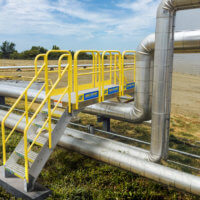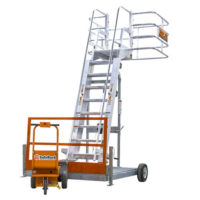Titanium is a strong, lightweight metal with a wide range of applications. Yet, it frequently gets compared to aluminum because of its cost, which is likewise a very strong metal but costs less. Aside from the cost, however, several factors can influence the final metal selection for a given application, including the metal properties.
With that, here is a simple comparison of the chemical and mechanical properties to reveal how they differ and whether one is preferable for a particular function.
Titanium
Titanium is one of the most abundant metals on the planet. It is a very desirable material since it is lightweight, robust, and corrosion-resistant. It is, nevertheless, harder to extract and process, making it more expensive than other metals. It is non-magnetic, non-toxic, and has good thermal conductivity.
Medical equipment often uses Titanium, such as knee replacements, pacemakers, cranial plates, and even as the root device for dental implants, due to its strength and non-toxicity. On the other hand, its corrosion resistance makes it a useful material for maritime, chemical applications. Its employment as a conductor, however, is limited due to its weak electrical conductivity.
Aluminum
Aluminum is a cost-effective material with an excellent weight-to-strength ratio and a low price. It is a dependable, strong metal with great fracture toughness and corrosion resistance. The thin aluminum oxide layer that forms nearly soon after exposure to air gives it a dull silvery appearance. Although it is more plentiful than titanium, the ease of fabrication is what pushes down the price.
Aluminum is resistant to most acids, but it is less so when it comes to alkalis. It has a high thermal conductivity, which is why it gets used in cooking, and because it is non-toxic and also used for utensils and other food-related items. It is also used as a conductor because it has ten times stronger electric conductivity than titanium.
In a nutshell, here is a comprehensive comparison of titanium and aluminum properties:
| TITANIUM | ALUMINUM | |
| TENSILE STRENGTH | Depending on the alloy, tensile strength ranges from 3,000 to 200,000 psi. | Aluminum has a low tensile strength in its pure form to get alloyed with other metals. |
| COEFFICIENT OF LINEAR THERMAL EXPANSION | 8.6 x 10-6 K-1 | 23.1 x 10-6 K-1 |
| MELTING POINT | 1668 C | 660.4 C |
| BOILING POINT | 3287 C | 2467 C |
| DENSITY | 4.506 g·cm-3 | 2.7 g.cm-3 |
| THERMAL CONDUCTIVITY | 21.9 W m-1 K-1 | 235 W m-1 K-1 |
Are you still confused about what to use for your next project? Try asking the experts from SafeRack. SafeRack is the industry leader in loading platform systems for trucks and railcars, maintenance work platforms, rolling platforms, and other fall prevention devices. Call us today!


























